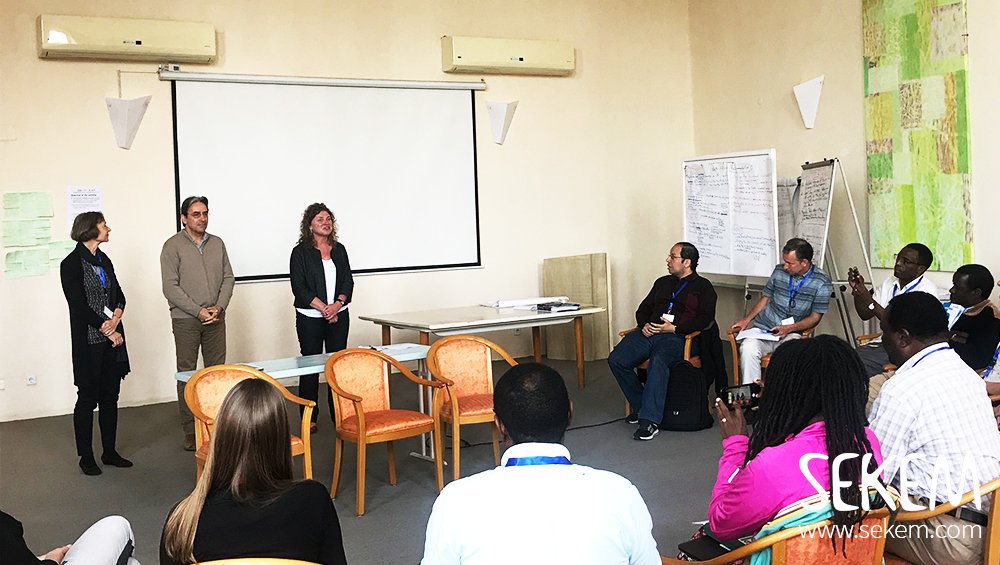2 - 4 April 2019. Cairo, Egypt "Boosting the Role and Potential of Organic Farming in Africa".
In April 2019, 39 participants from Africa and Europe met in Sekem, Egypt with the purpose to exchange and strategize organic development and spreading knowledge about organic farming in Africa.
 Participants had been part of an about one-year process of development of regional organic knowledge hubs (East, West, South and North) that are
Participants had been part of an about one-year process of development of regional organic knowledge hubs (East, West, South and North) that are
covering the African continent.
In April 2019, 39 participants from Africa and Europe met in Sekem, Egypt with the purpose to exchange and strategize organic development and spreading knowledge about organic farming in Africa.
 Participants had been part of an about one-year process of development of regional organic knowledge hubs (East, West, South and North) that are
Participants had been part of an about one-year process of development of regional organic knowledge hubs (East, West, South and North) that are covering the African continent.
- The first networking workshop aimed to bring together the different institutions working on Organic agriculture in Africa and discuss their characteristics, visions and strategies as well as the different challenges they face.
- This process is based on a Sekem-BMZ Memorandum of Understanding published in November 2017 and on a call for proposals in May 2018.
- In January 2019, BMZ mandated GIZ to implement organic knowledge hubs in Eastern, Western and Southern Africa with the intention that the northern region would follow in a similar way through other channels.

Further references:
An extensive new resource on agroecology has just been made available by Biovision, following the first phase of the Advocacy for Agroecology (A4A) project, of which IPES-Food is a key partner.
The “Agroecology Info Pool” (www.agroecology-pool.org) was launched last month at the 2nd Global Conference of the Sustainable Food Systems Programme - One Planet Network.
The Agroecology Info Pool contains convincing cases, a criteria tool to assess projects or policies, and an assessment of the impacts of various agroecological interventions on all Sustainable Development Goals.
This website serves as a platform to provide evidence, knowledge, and experiences on the impacts and multiple benefits of agroecology.
Through the A4A project, Biovision, IPES-Food, and other partners are assessing how current funding for agricultural research, development, and extension services is allocated, and to what extent it supports conventional systems versus sustainable (and particularly agroecological production).



No comments:
Post a Comment